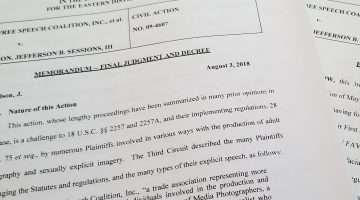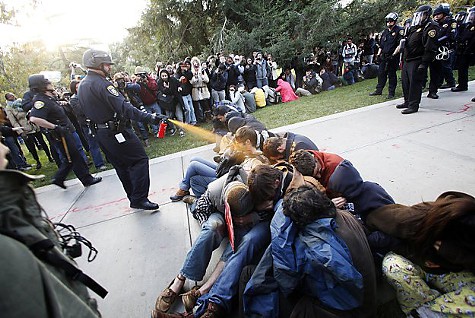 WASHINGTON, D.C. – The Supreme Court this week agreed to take a case that will decide whether a law that prohibits the sale of videos depicting animal cruelty violates First Amendment rights.
WASHINGTON, D.C. – The Supreme Court this week agreed to take a case that will decide whether a law that prohibits the sale of videos depicting animal cruelty violates First Amendment rights.
The U.S. Justice Department appealed the case, USA v. Stevens, after a U.S. appeals court declared the 1999 law unconstitutional, overturning the conviction of Robert Stevens, who sold three videos of pit bulls fighting each other and attacking hogs and wild boars.
This will be the first time in 27 years that the court will decide whether an entire category of speech is entitled to constitutional protection. The last case was New York v. Ferber, 458 U.S. 747 (1982), which declared child pornography an unprotected class of speech.
In declaring the animal cruelty law unconstitutional, the United StatesCourt of Appeals for the Third Circuit used the same 5-pronged analysis used in Ferber, as explained by Kristin Billera in a recent post on a Suffolk University Law School student website.
- First, the court found that the law fails to serve a compelling government interest because the regulation of depictions of such cruelty does not necessarily aid in preventing animal cruelty.
- The second factor in Ferber is that “child pornography is ‘intrinsically related to the sexual abuse of children’” and that children will continue to be psychologically harmed by the presence of their image in the marketplace. Animals are not capable of such awareness and thus, once the act of cruelty is committed, the harm that they suffer is not prolonged in any way.
- The third factor is that the “distribution market for child pornography must be closed so the production of child pornography will decrease.” However, the Court reasons that in the case of dog fighting, revenue is derived primarily from gambling and not the video sold of the event.
- The fourth factor discusses the value of the speech, a variation of the Miller Test, but the Court does not take this factor into account because the Court does not use this test outside of speech that appeals to “prurient interests” and does not require other speech to have serious value.
- Lastly, the court reasoned that the statute is not narrowly tailored enough to survive heightened scrutiny.
Reuters has also reported that the Justice Department also intended the law to address videos showing women in high-heeled shoes crushing small animals as a type of sexual fetish, in order to supress “a unique and reprehensible type of criminal conduct.”
The justices are expected to hear arguments in the case and then rule during their upcoming term that begins in October.











No Comment